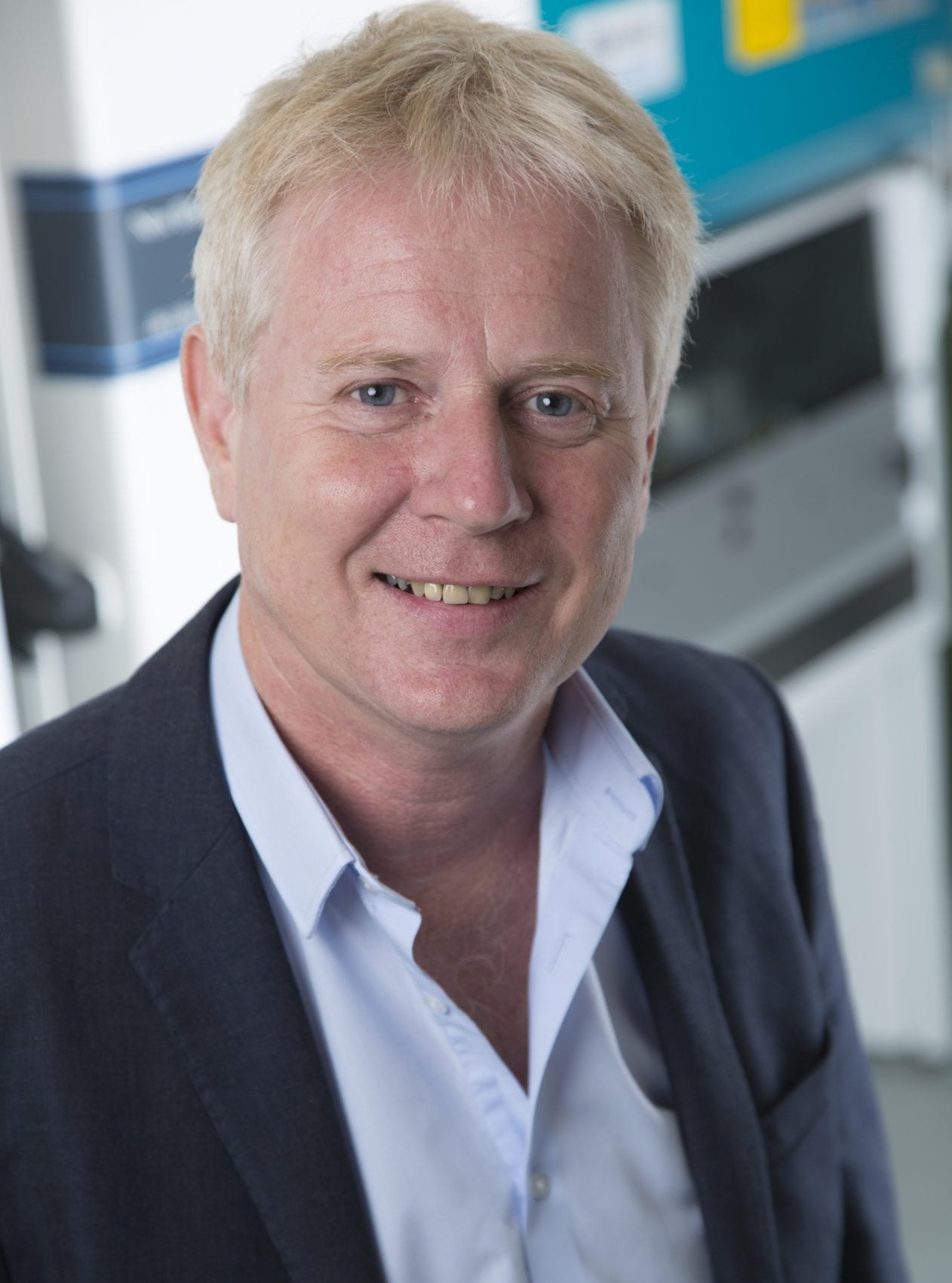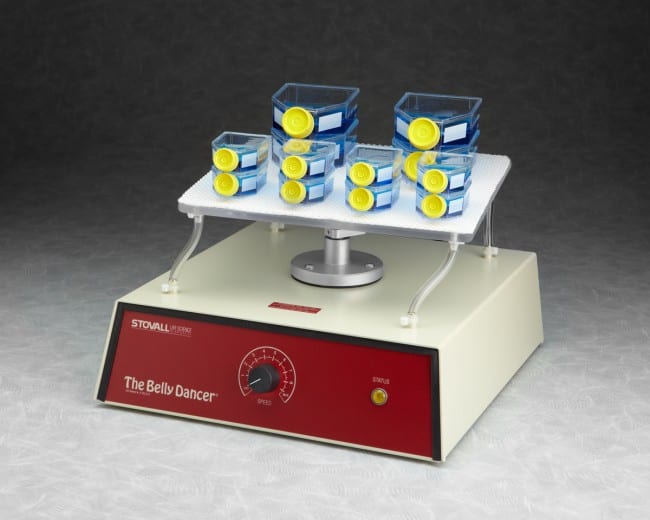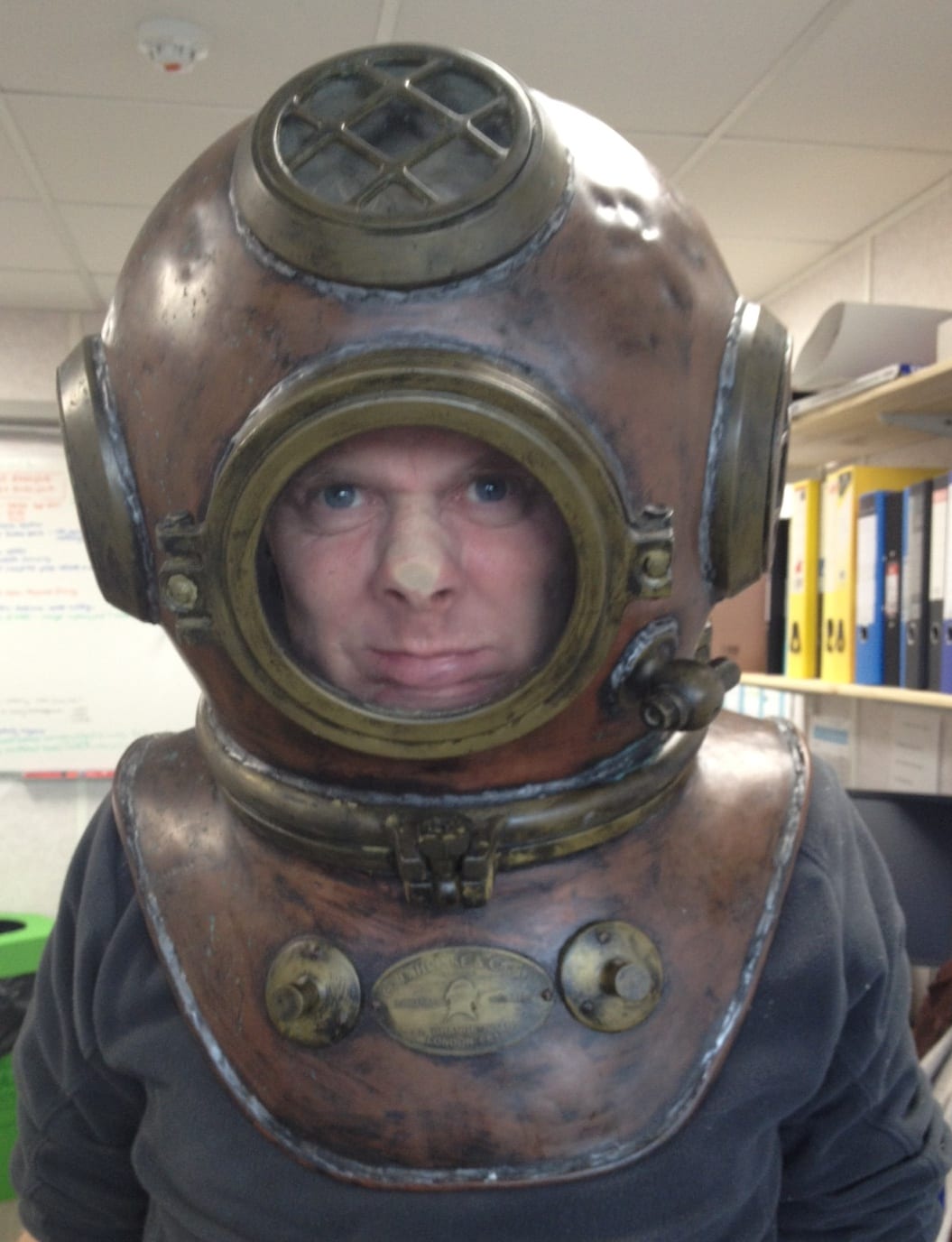Meet The Team: Dr Gary Smerdon
Scientist, Researcher, CEO and Managing Director.
Dr Gary Smerdon is now the Chief Executive Officer (CEO) of DDRC Healthcare, the Plymouth based charity that runs the Hyperbaric Medical Centre at Plymouth Science Park. He is also Director of trading subsidiaries DDRC Professional Services Ltd. and DDRC Medical Services Ltd. But, how did he get here?

The Early Years
From an early age Gary had an interest in the sciences and it was biochemistry that really sparked his interest. He enjoyed studying molecular level biology, exploring what was happening at the cellular level of organisms and understanding more about genes and DNA.
At the University of Exeter, Gary studied Biological Sciences at degree level and continued on to do a PhD. His initial research involved working in a Helsinki laboratory engineering yeast to carry out new types of fermentation. It was there that Gary learned how to sequence DNA. Ultimately, working with UK biotech company Celltech Ltd, he was part of a team engineering yeast to produce human fat-digesting enzymes for cystic fibrosis sufferers.
Once he left university in 1991, he did consider pursuing bio-technology over the Atlantic as he says at that time everyone advised him to work in the USA and get his ‘Been To America (BTA) Badge’!
Life as a Marine Scientist
As his PhD studies came to an end Gary was offered a position with Plymouth Marine Laboratory (PML) that was too good to miss. They tempted Gary to stay in the UK by giving him a remit to set up a molecular biology facility, integrating molecular research within their core marine research programme. His new role included developing his own research team and teaching some of the PML researchers molecular biology techniques such as genetic engineering, DNA sequencing and gene amplification.
It was a research scientist’s dream come true!

He recalls how one of the first pieces of equipment that he bought for the new PML laboratory was a rocking platform and orbital shaker, which he believes is still going to this day. The order for a ‘Belly Dancer’ caused some raised eyebrows in the finance department!
Working as a scientific researcher at PML gave him the opportunity to carry out work at sea on several research vessels.
In 1992 he went to sea on a research boat called RRS Challenger in the Celtic Sea – an area to the south of Ireland. He spent a couple of weeks examining zooplankton but this trip was most noteworthy for an ‘incident’ involving a missing buoy, a French trawler and a Fishery Protection vessel. The details of this tale are only likely to be shared over a pint of beer in an informal setting!
Another trip involved spending 5 weeks on RRS Discovery in the North Atlantic around Scotland, Iceland and Greenland, where his determination to take a molecular robot for automated DNA analysis of plankton turned some heads. A warmer research trip was spent off Tenerife measuring the impact of introducing nitrogen and phosphorus into nutrient limited environments and measuring the resulting plankton changes. The irony of conducting this, his last cruise, on a German ship named RV Poseidon is not lost on him!
Diving, Medicine and DDRC
In the mid 1990s Gary learned to dive at Fort Bovisand in Plymouth and achieved the PADI Open Water Diver and PADI Advanced Open Water Diver qualifications. Places that he has dived include Fiji and the Great Barrier Reef, but most of his diving has been on wrecks and reefs off Plymouth.
Having worked happily at PML for 13 years, he was finally tempted away by Dr Phil Bryson at the Diving Diseases Research Centre (now called DDRC Healthcare) in Plymouth.
Phil invited Gary to meet him at DDRC’s hyperbaric medical centre and explained that DDRC needed someone to manage and develop their research and make it more robust. During that initial visit a diver was actually brought in for emergency treatment for decompression illness (DCI) which Gary found fascinating. He had long had an interest in the medical applications of biochemical research and this was an opportunity to combine his interests in medicine, molecular biology and marine science.
Initially Gary worked part-time for DDRC as their Research Director and continued work with PML supervising PhD students and working on EU funded research projects.
Gary explains that; “When I arrived at DDRC there was a great deal of research work going on, but often it was not being fully concluded and the research papers were not being finalised and published. Now a full list of published research papers can be accessed via the DDRC website.”
He has worked closely with DDRC’s legendary researcher Marguerite St Leger Dowse on developing and delivering the ‘Health of Divers’ series of diving research projects. Gary has been instrumental in multiple, international research collaborations and clinical trials linked to hyperbaric oxygen (HBO) therapy. He has also qualified as a NBDHMT (National Board of Diving and Hyperbaric Medical Technology) Certified Hyperbaric Technologist.
Working with Senior Nurse Ali Bishop at DDRC, they established Plymouth Wound Care in 2011, to harness and develop the wound-care skills and experience of the Tissue Viability Nurses Specialists. Plymouth Wound Care has since become DDRC Wound care and forms an important part of DDRC Medical Services Ltd.
In 2012 Dr Smerdon was appointed to the position of CEO of the charity now called DDRC Healthcare. In 2013 he became the Managing Director of the charity’s trading subsidiary DDRC Professional Services Ltd. which delivers medical training courses.
This has of course taken him away from the pure research work but he is still managing to oversee the delivery of biomedical research through collaborative partnerships with universities and medical schools, mainly through the supervision of PhD studentships. Clinical trials and other diving research make sure he never gets bored!
Contributing to Marine Science in Plymouth
Aside from ‘the day job’ Gary has maintained his long-term involvement Plymouth Marine Science and Education Foundation (PLYMSEF) as a Trustee.
He also holds honorary Senior Lecturer positions with University of Exeter Medical School and the Peninsular Medical School in Plymouth.
What are your career highlights?
On reflection Gary says that his career highlight has been getting the job at DDRC as it enabled him to fulfill a long held ambition to work in a medical environment. The opportunities for researching the effects of pressure and gases on the human body and improving our understanding were just too exciting to resist.
From a DDRC perspective we have many highlights of working with Gary because underneath that professional, serious, scientific, senior manager exterior there lurks a man who is full of fun and rarely afraid of rolling his sleeves up or doing something that may make him look silly. Our photo archives are literally awash with inappropriate pictures of him demonstrating his more playful side!

What are you looking forward to?
Looking ahead, Gary is very excited about the research potential of the planned new Brain Research Imaging Centre (BRIC) being built at the DDRC facility through a partnership with the University of Plymouth. This will provide new teaching and research facilities and will enable us to improve engagement with the wider diving community. It will also bring a new level of research towards understanding the effects of pressure and gases on the human body – in this case, the brain.
Dr Gary Smerdon is also frequently available for ‘Talks and Tours’ and for TV and Media requirements.